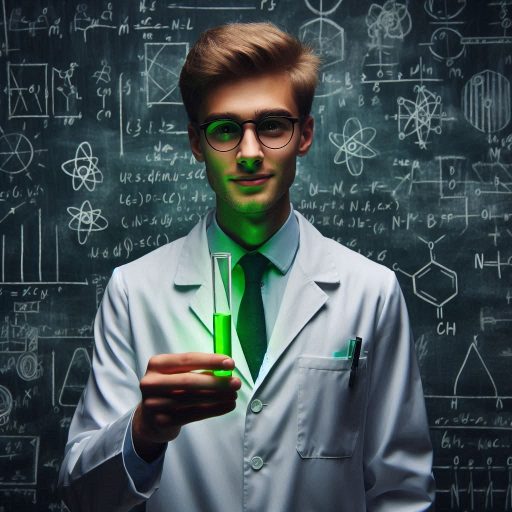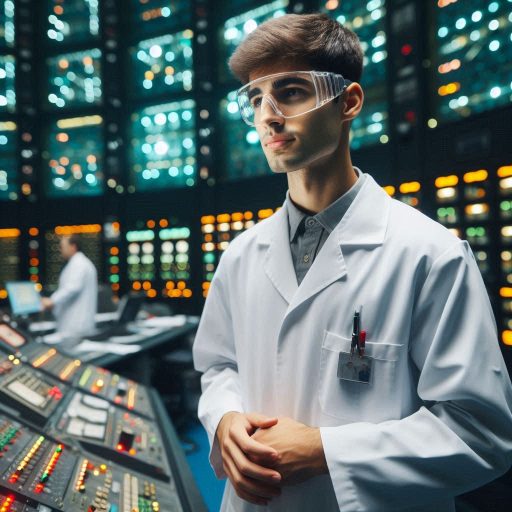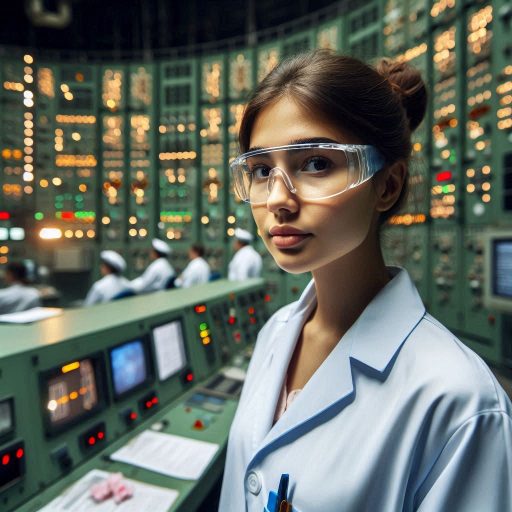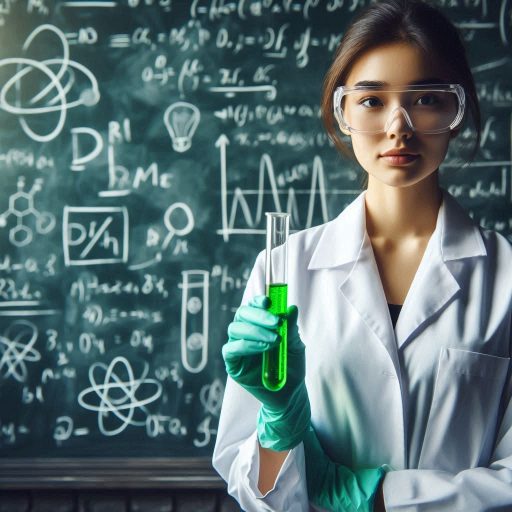Introduction
Conferences and events play a crucial role for nuclear scientists in sharing knowledge and advancing the field.
These gatherings facilitate networking, collaboration, and the exchange of innovative ideas among researchers and professionals.
Attending conferences allows scientists to present their findings and gain feedback from peers.
Nuclear science conferences have a rich history, dating back to the early 20th century.
The first major meeting focused on nuclear physics occurred in 1931 in Paris, bringing together leading scientists.
Over the decades, these conferences have evolved to encompass various topics, including nuclear energy, medical applications, and radiation safety.
Prominent organizations, such as the American Nuclear Society (ANS), regularly host conferences to address emerging challenges in nuclear science.
Events like the International Conference on Nuclear Science and Technology foster global collaboration.
They attract participants from academia, industry, and government.
In recent years, virtual conferences have become more popular, allowing broader access to discussions and presentations.
This trend helps nuclear scientists connect regardless of geographic location.
Overall, conferences and events are essential for fostering growth and innovation in the nuclear science community.
They encourage collaboration and ensure that advancements benefit society as a whole.
Types of conferences and events for nuclear scientists
International Conferences
International conferences play a significant role in the nuclear science community.
These events bring together scientists, researchers, and industry professionals from around the world.
Participants share their latest findings, innovations, and technologies in nuclear science.
Attending international conferences fosters collaboration among experts.
Networking opportunities allow attendees to form partnerships and initiate joint research projects.
These connections often lead to advancements in nuclear science and technology.
Moreover, international conferences typically feature keynote speakers who are leaders in the field.
Their presentations inspire attendees and provide insights into cutting-edge research.
These events also include panel discussions that encourage audience participation and engagement.
Virtual Conferences
Virtual conferences have become increasingly popular in recent years.
They offer an accessible alternative to traditional in-person events.
Participants can attend from anywhere in the world, reducing travel costs and time commitments.
These conferences maintain high-quality content through virtual presentations and discussions.
Attendees can engage in real-time Q&A sessions with speakers.
This format allows for dynamic interactions despite physical distance.
Virtual conferences often use advanced technology to enhance the experience.
Participants can access recorded sessions, enabling them to revisit presentations later.
This flexibility helps attendees maximize their learning and networking opportunities.
Workshops and Seminars
Workshops and seminars provide focused, hands-on experiences for nuclear scientists.
These smaller events allow for in-depth discussions on specific topics within nuclear science.
Participants can actively engage in exercises and collaborative projects.
Workshops often emphasize practical skills and techniques.
Attendees may learn about new technologies, methodologies, or regulatory requirements.
This hands-on approach enhances participants’ competencies and prepares them for real-world applications.
Seminars typically feature expert speakers who delve into specialized subjects.
Participants gain insights from leading researchers and practitioners.
These sessions encourage dialogue, fostering a deeper understanding of the topic at hand.
Webinars and Online Events
Webinars and online events offer flexible learning opportunities for nuclear scientists.
These digital formats allow participants to access content from the comfort of their homes.
Attendees can learn from industry experts without the constraints of travel.
Webinars often cover a wide range of topics relevant to nuclear science.
Participants can join discussions on current research, policy updates, and technological advancements.
This variety keeps attendees informed about the latest developments in the field.
Online events also promote networking through breakout sessions and discussion forums.
Participants can connect with peers and share ideas, fostering a sense of community.
This engagement enhances collaboration and knowledge sharing among scientists.
Conferences and events for nuclear scientists offer valuable opportunities for professional growth.
International conferences foster global collaboration, while virtual conferences ensure accessibility.
Workshops and seminars enhance practical skills, and webinars provide flexible learning experiences.
By participating in these events, nuclear scientists can stay informed, network with peers, and contribute to advancements in their field.
Engaging in conferences and events is essential for fostering innovation and collaboration in nuclear science.
Read: Challenges and Rewards: The Dual Life of an U.S. Environmental Scientist
Benefits of attending conferences and events for nuclear scientists
Networking Opportunities with Other Professionals
Conferences and events for nuclear scientists provide invaluable networking opportunities.
These gatherings allow professionals to connect and collaborate across various specializations.
Engaging with peers can lead to potential partnerships and collaborative research projects.
Meeting other professionals fosters an exchange of ideas and best practices.
Participants can share their experiences and learn from one another.
Networking can also help scientists discover new job opportunities within the field.
Building relationships with industry leaders enhances visibility and opens doors for future collaborations.
Access to Cutting-Edge Research and Developments
Attending conferences allows nuclear scientists to access cutting-edge research and developments.
Many events feature presentations from leading experts in the field.
Participants gain insights into the latest technological advancements and breakthroughs.
These conferences often showcase innovative projects and research findings.
Scientists can learn about emerging trends and methodologies.
This knowledge enables them to stay updated with current practices and challenges within nuclear science.
Moreover, attendees can participate in workshops and panel discussions.
These interactive sessions encourage deeper engagement with current issues in the field.
Scientists can ask questions and explore topics that interest them.
Access to this wealth of information is crucial for professional growth.
Opportunity to Present Research Findings and Gain Feedback
Presenting research findings at conferences offers scientists a platform to share their work.
This exposure can lead to valuable feedback from peers and experts.
Receiving constructive criticism helps researchers refine their methodologies and improve their studies.
Sharing research also enhances a scientist’s credibility within the community.
It demonstrates their expertise and commitment to advancing the field.
Presentations can spark discussions that lead to new ideas and collaborations.
Additionally, presenting at conferences helps scientists build confidence.
They learn to communicate complex concepts effectively to diverse audiences.
This skill is essential for career advancement in academia and industry.
Career Advancement and Professional Development Opportunities
Conferences and events provide numerous opportunities for career advancement.
Attendees can participate in workshops focused on professional development.
These sessions often cover topics such as grant writing, leadership skills, and project management.
Networking at conferences can also lead to mentorship opportunities.
Young professionals can connect with seasoned scientists who offer guidance and support.
These relationships can significantly influence career trajectories and help navigate challenges.
Moreover, many conferences host job fairs and recruitment events.
Participants can meet potential employers and learn about job openings.
This access to career opportunities can be pivotal for those seeking to advance in nuclear science.
Conferences and events play a vital role in the professional lives of nuclear scientists.
They provide networking opportunities, access to cutting-edge research, and platforms for presenting findings.
Furthermore, these gatherings foster career advancement and professional development.
By participating in these events, scientists enhance their skills, expand their networks, and contribute to the growth of the nuclear science field.
Ultimately, engaging in conferences allows professionals to stay connected, informed, and inspired in their careers.
Read: Job Market Trends: Future of Chemistry Jobs in America
Top Conferences and Events for Nuclear Scientists
International Conference on Nuclear Engineering (ICONE)
The International Conference on Nuclear Engineering (ICONE) gathers experts from around the globe.
This annual conference focuses on the latest research and developments in nuclear engineering.
Participants present technical papers and share innovations in reactor design, safety, and waste management.
Attending ICONE allows scientists to engage in discussions about emerging trends.
Networking opportunities abound, enabling attendees to connect with peers and industry leaders.
Workshops and panel discussions provide insights into the future of nuclear engineering.
ICONE also emphasizes collaboration across disciplines.
Researchers, industry professionals, and policymakers gather to explore solutions to global energy challenges.
By attending ICONE, nuclear scientists contribute to shaping the future of nuclear engineering.
World Nuclear Exhibition (WNE)
The World Nuclear Exhibition (WNE) is a premier event showcasing nuclear technology and services.
This biennial exhibition attracts industry stakeholders, including manufacturers, suppliers, and research institutions.
Participants explore the latest technologies and innovations in nuclear energy.
WNE provides a platform for networking and collaboration.
Attendees can meet potential partners and discuss business opportunities.
The exhibition features keynote speeches from leading experts, offering valuable insights into industry trends.
Workshops and roundtable discussions at WNE address current challenges in nuclear energy.
Topics include safety, sustainability, and regulatory frameworks.
Attending WNE enables nuclear scientists to stay updated on industry developments and foster valuable connections.
American Nuclear Society Annual Meeting
The American Nuclear Society (ANS) Annual Meeting is a significant event for nuclear professionals in the United States.
This conference features technical sessions, workshops, and networking opportunities.
Participants present research findings and discuss advancements in nuclear science and technology.
The ANS Annual Meeting also highlights educational programs and training sessions.
These programs focus on critical topics, such as nuclear safety and environmental protection.
Attendees gain insights into regulatory issues and industry standards.
Networking is a key component of the ANS Annual Meeting.
Participants can connect with colleagues, mentors, and potential employers.
This event fosters collaboration among professionals and enhances career opportunities within the nuclear field.
Read: Challenges and Rewards: Navigating the Chemist Career Path
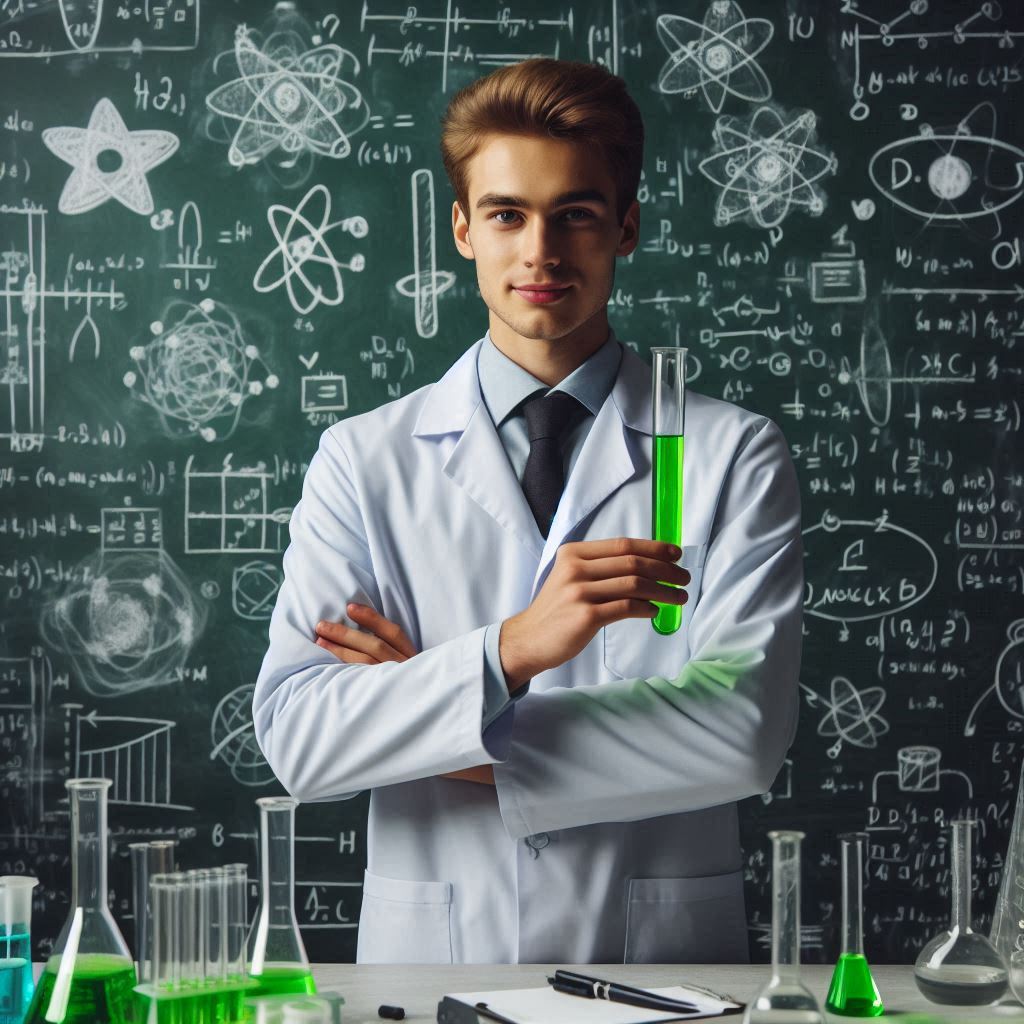
International Atomic Energy Agency General Conference
The International Atomic Energy Agency (IAEA) General Conference is an essential event for global nuclear scientists.
This annual conference gathers representatives from member states to discuss nuclear safety, security, and sustainable development.
The IAEA General Conference addresses critical issues facing the nuclear community.
Topics include advancements in nuclear technology, radiation protection, and international collaboration.
Attendees can participate in technical sessions and workshops led by experts.
Networking opportunities abound at the IAEA General Conference.
Scientists, policymakers, and industry leaders come together to share knowledge and best practices.
This collaborative environment fosters partnerships that drive innovation in nuclear science.
Conferences and events play a crucial role in the professional development of nuclear scientists.
The International Conference on Nuclear Engineering, World Nuclear Exhibition, American Nuclear Society Annual Meeting, and IAEA General Conference offer valuable opportunities for learning and networking.
By participating in these events, nuclear scientists can stay updated on industry advancements and contribute to shaping the future of nuclear energy.
Engaging with peers and experts allows for collaboration and the sharing of innovative ideas, ultimately advancing the field of nuclear science.
Read: Diverse Career Paths: From Chemist to Patent Attorney in the US
How to prepare for conferences and events
Research the Agenda and Speakers
Before attending any conference, research the agenda and speakers in advance.
Familiarize yourself with the topics being discussed.
This knowledge helps you identify sessions that align with your interests and expertise.
Check the backgrounds of the speakers as well.
Understanding their work can provide context for their presentations.
You may find opportunities for collaboration or discussions during the event.
Creating a personalized schedule can enhance your experience.
Prioritize sessions that resonate with your research or professional goals.
By planning ahead, you ensure you don‘t miss valuable insights.
Prepare a Presentation or Research Poster
If you plan to present your work, prepare a clear and engaging presentation.
Focus on key findings and their implications for the nuclear science community.
Ensure your content is concise and visually appealing.
If you choose to create a research poster, make it informative and easy to read.
Use bullet points, graphs, and images to convey your message effectively.
Practice your presentation to build confidence and improve delivery.
Seek feedback from colleagues or mentors before the event.
Their insights can help you refine your content and presentation style.
A well-prepared presentation can spark meaningful conversations with attendees.
Bring Business Cards and Professional Attire
Always bring business cards to conferences.
These cards serve as a convenient way to share your contact information.
Include your name, affiliation, and relevant social media profiles.
Business cards can facilitate networking with peers and potential collaborators.
After engaging conversations, exchanging cards can help maintain those connections.
In addition to business cards, dress professionally for the event.
Wearing professional attire creates a positive impression.
It shows that you take the event seriously and respect the attendees.
Dressing appropriately can boost your confidence as well.
Feeling good in your outfit allows you to focus on networking and learning.
Transform Your Career Today
Unlock a personalized career strategy that drives real results. Get tailored advice and a roadmap designed just for you.
Start NowSet Goals for What You Want to Achieve
Before the conference, set clear goals for what you want to achieve.
Define your objectives, such as networking with specific individuals or learning about new research trends.
Having specific goals helps you stay focused during the event.
Regularly assess your progress throughout the conference.
Are you making the connections you envisioned? Are you gaining the insights you sought?
Reflecting on your goals can enhance your experience.
After the conference, evaluate whether you met your objectives.
This reflection can inform your preparation for future events.
Attending conferences and events is invaluable for nuclear scientists.
By researching the agenda and speakers, you can maximize your learning.
Preparing a presentation or research poster allows you to share your work effectively.
Bringing business cards and dressing professionally enhances your networking opportunities.
Finally, setting clear goals ensures you make the most of your experience.
With proper preparation, you can significantly impact your professional growth and the nuclear science community.
Find Out More: Education Requirements for Aspiring Bioinformaticians
See Related Content: How Immunologists Contribute to Public Health
Tips for getting the most out of conferences and events
Attend Networking Sessions and Interact with Other Attendees
Conferences and events for nuclear scientists provide excellent networking opportunities.
Attend networking sessions to meet professionals in your field.
Engaging with fellow attendees allows for valuable connections and insights.
These interactions can lead to future collaborations and job opportunities.
Share your research interests and experiences to foster meaningful discussions.
Make an effort to approach individuals from different backgrounds.
Diverse perspectives can enhance your understanding of nuclear science.
Consider exchanging contact information to maintain connections after the event.
Building a professional network is crucial for career development in nuclear science.
Ask Questions During Presentations and Engage in Discussions
During presentations, actively ask questions to clarify concepts and gain deeper insights.
Engaging speakers shows your interest and helps you learn more.
Thoughtful questions can also spark discussions among attendees.
Participate in these discussions to share your perspectives and learn from others.
Take notes during presentations to remember key points.
Referencing these points when asking questions demonstrates your engagement.
Engaging in discussions also helps you connect with speakers and other attendees.
These interactions can lead to future collaborations or mentorship opportunities.
Follow Up with Contacts After the Event
After the conference, follow up with the contacts you made.
A simple email can help solidify these connections.
Mention something specific you discussed to remind them of your conversation.
This personal touch increases the likelihood of a positive response.
Keep your communication professional and concise.
Express your appreciation for their time and insights.
Inquire about any potential collaborations or opportunities for further discussions.
Establishing these connections can lead to future networking opportunities or job prospects.
Stay Updated on Upcoming Conferences and Events
To continue your professional growth, stay updated on upcoming conferences and events.
Regularly check industry websites and social media platforms for announcements.
Joining relevant professional organizations can also provide information on future events.
Participating in ongoing learning opportunities enhances your knowledge and skills.
Conferences often feature new research, technologies, and methodologies.
These events can keep you informed about advancements in nuclear science.
Consider setting reminders for registration deadlines and event dates.
Planning ahead ensures you don‘t miss valuable opportunities.
Attend a variety of events to broaden your network and knowledge base.
Conferences and events are vital for nuclear scientists seeking to expand their networks and knowledge.
Attending networking sessions, engaging during presentations, and following up with contacts are essential strategies.
Staying updated on upcoming conferences ensures continuous learning and connection building.
Embrace these opportunities to enhance your career in nuclear science.
Conclusion
Conferences and events are vital for nuclear scientists to share knowledge and advancements in their field.
They provide a platform for researchers to present their findings and discuss emerging trends.
Attending these gatherings fosters collaboration and encourages the exchange of ideas among professionals.
Moreover, conferences often feature workshops and seminars led by experts.
These sessions enhance skills and deepen understanding of specific topics within nuclear science.
Participants can gain insights into the latest technologies and methodologies shaping the industry.
Networking is another significant benefit of attending conferences.
Scientists can connect with peers, potential collaborators, and industry leaders.
Building these relationships can lead to future research opportunities and career advancements.
Nuclear scientists should actively seek out and attend upcoming events.
Many organizations host annual conferences that cater specifically to nuclear science professionals.
Taking advantage of these opportunities can enhance one‘s career trajectory and expand professional horizons.
By participating in conferences, scientists can stay current on innovations and best practices.
They also contribute to the ongoing discourse in nuclear science, helping to shape the future of the field.
Engaging in these events ultimately strengthens the global community of nuclear scientists.

